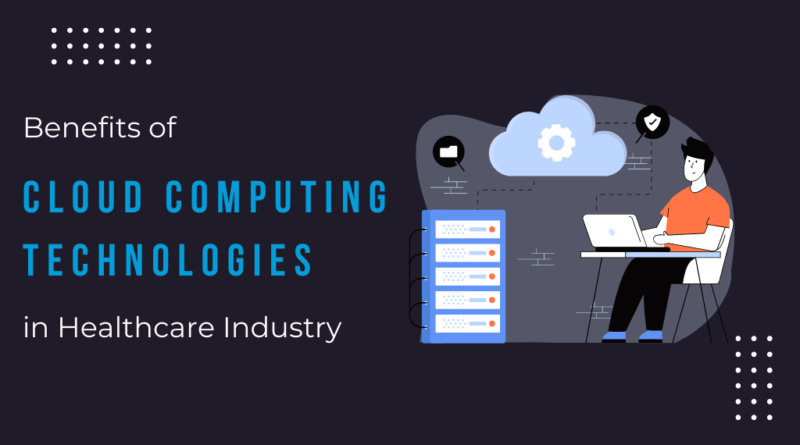How is Cloud Computing Technology transforming the Health Care Industry?
Healthcare Industry is one of the most prominent industries as it involves day-to-day operations and processing of vast heaps of sensitive data and personal information of patients. So, it becomes a challenging task to properly store the patient data and process it per regulatory compliance.
The other most significant challenge is cost-effectively hosting these vast amounts of data. Organizations cannot keep up with the high cost of on-premises servers and IT infrastructure.
How Cloud-Managed Services can solve all these challenges?
Cloud Computing solutions can resolve all these challenges faced by the healthcare industry. It has improved the overall process from establishing infrastructure to connecting multiple clinics. Utilizing cloud computing solutions, healthcare establishments can provide remote access to their patients and, therefore, eliminate location restrictions. Also, many hospitals have already undergone changing their legacy systems to include electronic health records system (EHRs), a digital format for paper medical records.
For example, when all the clinics were closed, telehealth emerged as one of the best alternative measures to get doctors’ consultations through a digital medium regardless of any physical location. Now, many healthcare organizations are opting for cloud environments with the help of cloud consulting services. So, cloud computing is modifying the whole landscape, transforming how doctors, nurses, clinics, and hospitals deliver quality, cost-effective services to their patients.
Benefits of Cloud Computing
So, in this blog, we will discuss how the healthcare industry is benefitting from cloud computing technology.
Collaboration
Cloud computing has proven to provide better collaboration in almost every industry. It becomes easier to view and share patient data with cloud computing solutions. Now, doctors, nurses, and other staff members can easily collaborate and can easily view & share patient data from anywhere and at any time.
Cost-Effective
Earlier, many healthcare organizations were working on legacy on-premises applications. But the disadvantage of on-premises environments is that managing and maintaining all the solutions in an on-premise environment is significantly costlier than the cloud environment. An on-premises setup requires in-house server hardware, software licenses, integration capabilities, and IT employees on hand to support and manage potential issues that may arise. Utilizing an IT organization’s cloud computing consulting services, one can easily switch to a cloud solution.
Faster Speed
The cloud computing environment offers faster speed, i.e., individuals can remotely access the data with more incredible speed without human intervention. Also, individuals can access the data at any time. Cloud computing will completely transform data access and storage in healthcare without stumbling.
Scalability and Reliability
Scalability and flexibility are some of the most significant advantages of cloud computing technology. Cloud scalability means how your system will handle the changing demands. For example, if any organization grows, they will be able to scale up the resources, while in case of less load, they will be able to scale down the resources.
Cloud computing solutions are highly reliable as they follow strict regulatory compliance; also, there’s no issue of data theft, downtime, unauthorized information leaks with top-notch security systems and patches.
Conclusion
The healthcare industry is generating a massive amount of data at an enormous pace. So, it is becoming harsher day by day to manage this vast amount of data at a physical location with suitable security. Cloud Computing technologies can resolve all these challenges. The healthcare industry is utilizing cloud computing technology exponentially to meet their demands and needs, and there is a lot to come in the future.




